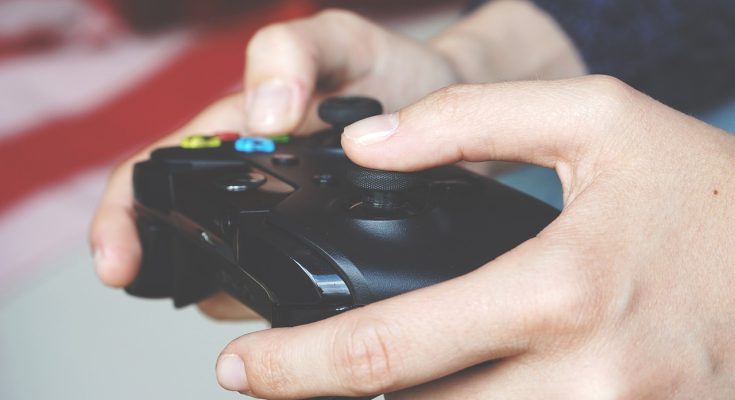The Power of Sound: How Music Enhances Gaming Experiences
Introduction
In the world of gaming, where every detail contributes to the overall experience, sound plays a pivotal role in creating immersive and memorable moments. From the triumphant melodies accompanying victorious battles to the haunting tunes of eerie environments, music has the power to enhance gaming experiences in profound ways. This article explores the symbiotic relationship between music and gaming, delving into how soundtracks elevate gameplay to new heights.
The Psychology Behind Music and Gaming
Influence of Music on Emotions
Music has a profound effect on human emotions, evoking feelings of excitement, suspense, or nostalgia. In gaming, carefully crafted soundtracks can amplify these emotions, intensifying the player’s connection to the virtual world. Whether it’s the adrenaline-pumping beats during action sequences or the soothing melodies in tranquil settings, music sets the tone for the player’s emotional journey.
Immersion and Atmosphere in Gaming
Beyond eliciting emotions, music contributes to the overall atmosphere and immersion of the gaming experience. Ambient sounds and background music create a sense of place, transporting players to fantastical realms or dystopian futures. By enveloping players in a sonic landscape, music bridges the gap between reality and fiction, making the gaming experience more engaging and believable.
Enhancing Gameplay with Music
Music’s Role in Setting the Tone
The right music can dramatically alter the tone and pacing of a game. Fast-paced tracks energize players during intense moments, while slower melodies encourage reflection and exploration. By aligning music with gameplay dynamics, developers can enhance the player’s understanding of the narrative and gameplay objectives, leading to a more cohesive and immersive experience.
Increasing Focus and Concentration
Studies have shown that certain types of music can improve concentration and focus, a phenomenon is known as the “Mozart effect.” In gaming, strategically chosen soundtracks can help players enter a state of flow, where they become fully immersed in the gameplay and perform at their best. By leveraging the power of music, developers can optimize player engagement and performance.
Creating Memorable Moments
Impact of Music on Memorable Gaming Experiences
Some of the most unforgettable moments in gaming are accompanied by iconic soundtracks. Whether it’s the haunting melody of “Ezio’s Family” in Assassin’s Creed or the epic orchestral scores of the Final Fantasy series, music has the power to elevate ordinary gameplay moments into extraordinary experiences. These emotional connections forged through music leave a lasting impression on players, shaping their perception of the game long after they’ve finished playing.
Emotional Connection Through Soundtracks
Music can evoke powerful emotions and memories, tapping into the player’s personal experiences and emotions. By incorporating themes of love, loss, triumph, and despair, game soundtracks create a deeper emotional connection between the player and the virtual world. This emotional resonance not only enhances the storytelling aspect of games but also fosters empathy and understanding among players.
Music as a Gameplay Mechanic
Incorporating Music into Game Mechanics
Innovative game developers are exploring new ways to integrate music into gameplay mechanics. From rhythm-based games like Guitar Hero to narrative-driven experiences like The Last of Us, music serves as a central gameplay element, influencing player actions and decisions. By blurring the lines between music and gameplay, developers can create unique and immersive gaming experiences that challenge traditional notions of interactive entertainment.
Dynamic Music Systems and Adaptive Soundtracks
Advancements in technology have enabled the creation of dynamic music systems that adapt to player actions and choices in real time. These adaptive soundtracks evolve based on the player’s progress, creating a seamless and personalized audio experience. By dynamically adjusting tempo, intensity, and instrumentation, developers can enhance immersion and tailor the gameplay experience to each player’s preferences and playstyle.
Community and Culture
Shared Experiences Through Gaming Soundtracks
Gaming soundtracks have become cultural touchstones, uniting players around shared experiences and memories. Whether it’s attending live orchestral performances of beloved game music or participating in online discussions about favorite soundtracks, gaming communities celebrate the artistry and impact of video game music. These shared experiences foster a sense of camaraderie and connection among players, transcending geographical and cultural boundaries.
Music-Driven Gaming Events and Communities
The popularity of music-driven gaming events and communities continues to grow, showcasing the creativity and talent of musicians within the gaming industry. From video game concerts and music festivals to online communities dedicated to remixes and covers, music enthusiasts come together to celebrate their shared passion for gaming music. These events provide opportunities for collaboration, creativity, and expression, further enriching the gaming experience for players worldwide.
The Future of Sound in Gaming
Advancements in Audio Technology
As technology continues to evolve, so too does the potential for innovation in gaming sound design. From spatial audio and binaural recording techniques to procedural audio generation and virtual reality soundscapes, the future of gaming audio holds limitless possibilities. These advancements promise to further immerse players in rich and dynamic audio environments, blurring the lines between the real and virtual worlds.
The potential of Virtual Reality and Spatial Audio
Virtual reality (VR) technology presents new opportunities for audio immersion, allowing players to experience sound in three dimensions. Spatial audio techniques simulate the way sound behaves in the physical world, enhancing realism and presence in VR environments. By leveraging spatial audio, developers can create truly immersive gaming experiences where sound not only surrounds the player but also reacts dynamically to their movements and interactions.
Conclusion
In conclusion, the power of sound in gaming cannot be overstated. Music enhances gameplay experiences by influencing emotions, creating an atmosphere, and shaping player engagement. As technology continues to advance, the relationship between music and gaming will evolve, ushering in new opportunities for innovation and creativity. By harnessing the transformative potential of sound, developers can create immersive and unforgettable gaming experiences that resonate with players on a profound level.
Unique FAQs
1. How does music impact player performance in competitive gaming?
Music can influence player focus and concentration, potentially enhancing performance in competitive gaming scenarios. However, individual preferences for music genres and tempos may



